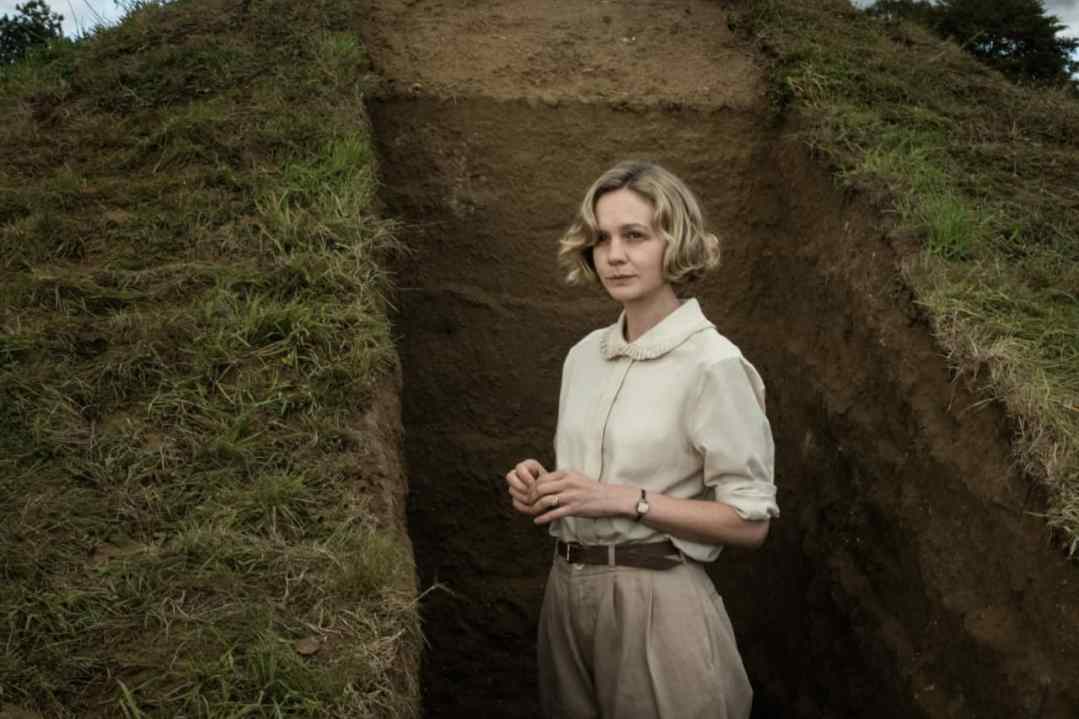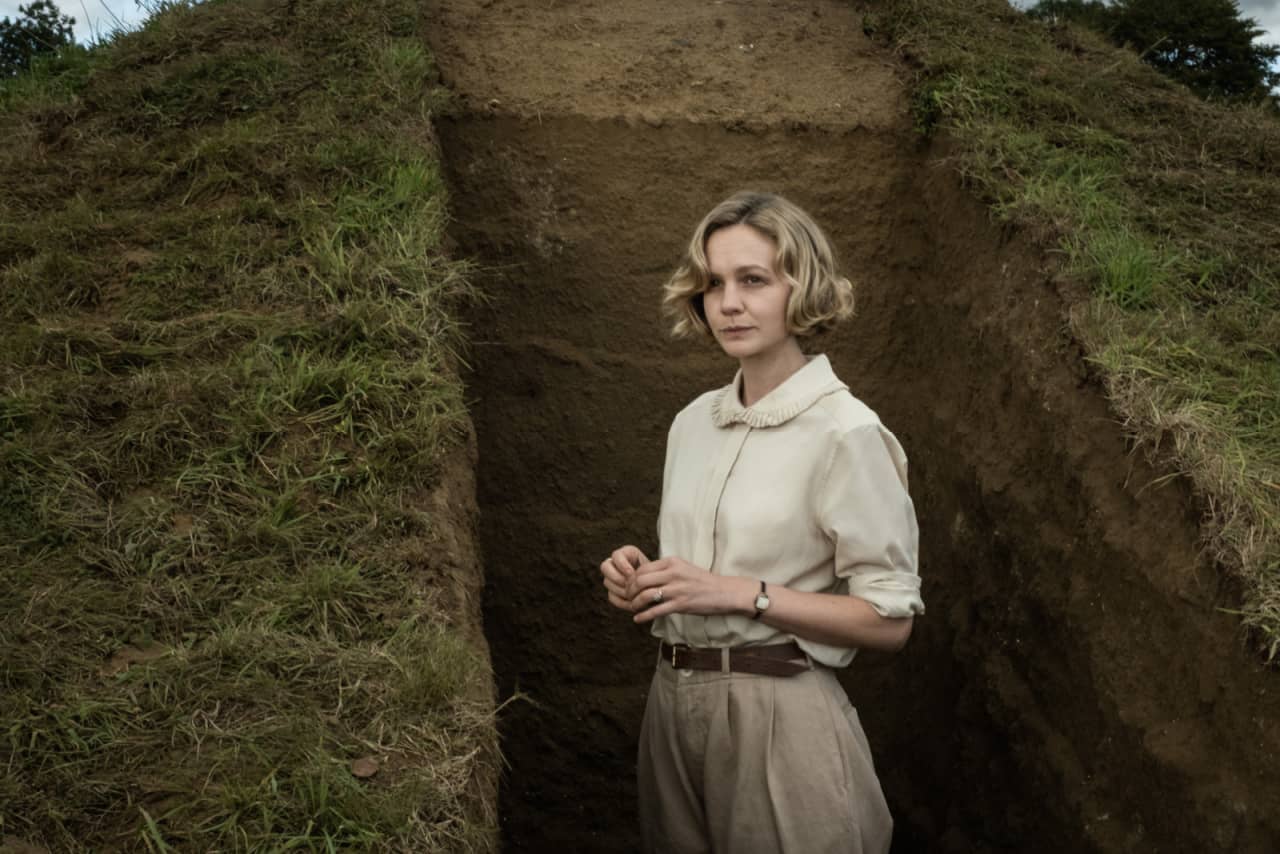The Power of the Dog: Cumberbatch is spectacular
Jane Campion’s The Power of the Dog could also be called The Power of Benedict Cumberbatch, as he’s so spectacular. He plays a ruggedly masculine cowboy with an inner life that isn’t written, but that we somehow still see. It is also clearly Campion’s best film since The Piano. Read the full review here.
The Lost Daughter: entirely gripping
The Lost Daughter is an adaptation of the Elena Ferrante novel about motherhood that says, quite ferociously: it’s complicated. And: mothers aren’t necessarily motherly, and can feel ambivalence. You’d think it was unfilmable, particularly as the central character describes herself as someone even she doesn’t understand but, directed by Maggie Gyllenhaal — it’s her directorial debut — and starring Olivia Colman, this film is entirely gripping. No ambivalence on that count. More on the film here.
Passing: exquisite to look at, strangely tense and wholly riveting
Passing is Rebecca Hall’s adaptation of the Nella Larsen novella (1929) about two biracial women, one of whom chooses to pass for white, and one who does not, and the effect they have on each other, and it’s superbly done. It’s tightly made, exquisite to look at, strangely tense, wholly riveting and it’s also, let’s be honest, just the right length for a film (90 minutes). Full write up here.
The Courier: the best Cold War thriller I’ve seen
This is a damn good, explosively tense story that focuses on the friendship that develops between two men on opposite sides. And it is plainly wonderful.
Written by Tom O’Connor (not the comedian; don’t be silly), and directed by Dominic Cooke (On Chesil Beach and an associate of the National Theatre), the film is, remarkably, based on true events. It’s set in the early 1960s when the CIA and MI6 had been clandestinely contacted by a member of Russian military intelligence, Oleg Penkovsky — here played superbly by the Georgian actor Merab Ninidze. Alarmed by escalating tensions between the USSR and the West, he had offered secret information about his country’s nuclear capabilities and now someone is needed to smuggle this top-level intel out of Moscow who would not be suspected by the KGB.
Enter Greville Wynne (Benedict Cumberbatch, also superb), an unassuming British salesman who sold engineering products and could travel under the guise of trade. Wynne is just the man for the job, you wouldn’t think, and he doesn’t think so either. Full review here.
The Father: Anthony Hopkins’s portrayal of dementia will undo you
The Father is an immensely powerful film about dementia starring Sir Anthony Hopkins, who was asleep in his bed in Wales when his Best Actor Oscar was announced, so we’ll never know if his outfit would have been a hit or a miss. Shall we give him the benefit of the doubt and say ‘hit’? Either way, he is absolutely remarkable here.
I read the screenplay, available online, out of curiosity, and what he brings to the words on the page is beyond and beyond and beyond. Hopkins has played King Lear (twice) but this is his real King Lear. Read more here.
First Cow: the best cow film of the year
The film is Kelly Reichardt’s eighth feature and if you’ve seen Meek’s Cutoff, a sort of western, or Wendy and Lucy, possibly the best dog film ever, you will know she is a singular filmmaker whose characters always serve as plot rather than serve the plot, which is a joy.
It opens in modern-day Oregon as a dog digs up something in the woods. And I don’t need to be cagey about what the dog finds as it happens in the first few minutes. It discovers a pair of human skeletons positioned in such a way that you understand that whoever they were, they were close.
The film has sumptuous cinematography by Christopher Blauvelt and an evocatively melancholic score by William Tyler but what is most compelling are the two exquisitely drawn main characters so exquisitely played. And the cow. Looks can only take you so far, but Evie has it, I think. Read the full verdict here.
Promising Young Woman: Clever, funny and stomach-knotting
Promising Young Woman is a rape-revenge-thriller that has already proved divisive but is a wonderfully clever, darkly funny, stomach-knotting — my stomach may never unknot — exploration of what #notallmen seem to get: it isn’t OK to have sex with a woman who has had a few too many and isn’t in a position to give consent. Unless, of course, she is also out late at night and wearing a short skirt in which case: asking for it. We all know that.
This is written and directed by the extraordinary polymath that is Emerald Fennell, who was head writer for the second series of Killing Eve, has collaborated with Andrew Lloyd Webber on his forthcoming Cinderella, and is a novelist and actress. (She played Camilla Parker Bowles in The Crown; I don’t know if she’s also a black belt at judo but there has to be a chance.)
It stars Carey Mulligan as Cassie, a medical school drop-out whose best friend, Nina, committed suicide after she was raped at a college party while other boys looked on, laughing. Cassie now lives with her despairing parents, works in a coffee shop and has an unusual hobby: revenge, served cold and also often. More on the film here.
The Dig: remarkably moving
Just before the outbreak of the second world war a discovery was made in a riverside field at Sutton Hoo in Suffolk. It was an immense buried boat, dating from the 7th century, and it yielded gilded treasure after gilded treasure, thereby wholly changing our understanding of the Dark Ages. ‘They weren’t dark… by Jupiter!’ as one archaeologist puts it here.
It is a fascinating story that could have been told as a full-on thriller. But instead the film employs a delicious, graceful restraint, paying as much attention to deeply buried feeling as to what’s buried deeply in the earth. It’s remarkably moving. By Jupiter, I even cried by the end. Starring Ralph Fiennes and Carey Mulligan – and reviewed in full here.
The White Tiger: so good I watched it twice
The White Tiger is adapted from the Booker-prize winning novel (2008) by Aravind Adiga. It is directed by Ramin Bahrani (Man Push Cart, 99 Homes) who also wrote the screenplay. It stars Adarsh Gourav, otherwise a songwriter and singer. It’s a rags-to-riches story set in India but it’s not at all a typical rags-to-riches story set in India.
Those are some of the things you probably should know, but there is only one thing I want you to know: it is wonderful and, even though the subject matter is often chilling, and there’s simmering rage, and murder, it’s still two hours of boisterous, dazzling, swaggering fun. I watched it once and thought: I could easily watch that again. So I did. Unheard of. And one last thing I want you to know: Bahrani may be a genius. Here’s our full verdict.
Dear Comrades!: riveting
Andrei Konchalovsky’s Dear Comrades! is based on a true event and set in 1962 in the Russian city of Novocherkassk where the local factory, the Novocherkassk Electric Locomotive Plant, went on strike. This doesn’t sound especially sexy, I know, but it is superbly acted and so rivetingly told my concentration did not waver for an instant.
It is filmed in stark black and white, presumably to mimic the style of (heavily censored) Soviet films of that time. It immediately takes you back to that era, plus it is startlingly beautiful. I didn’t look up once during the two hours. More on the film here.







Comments